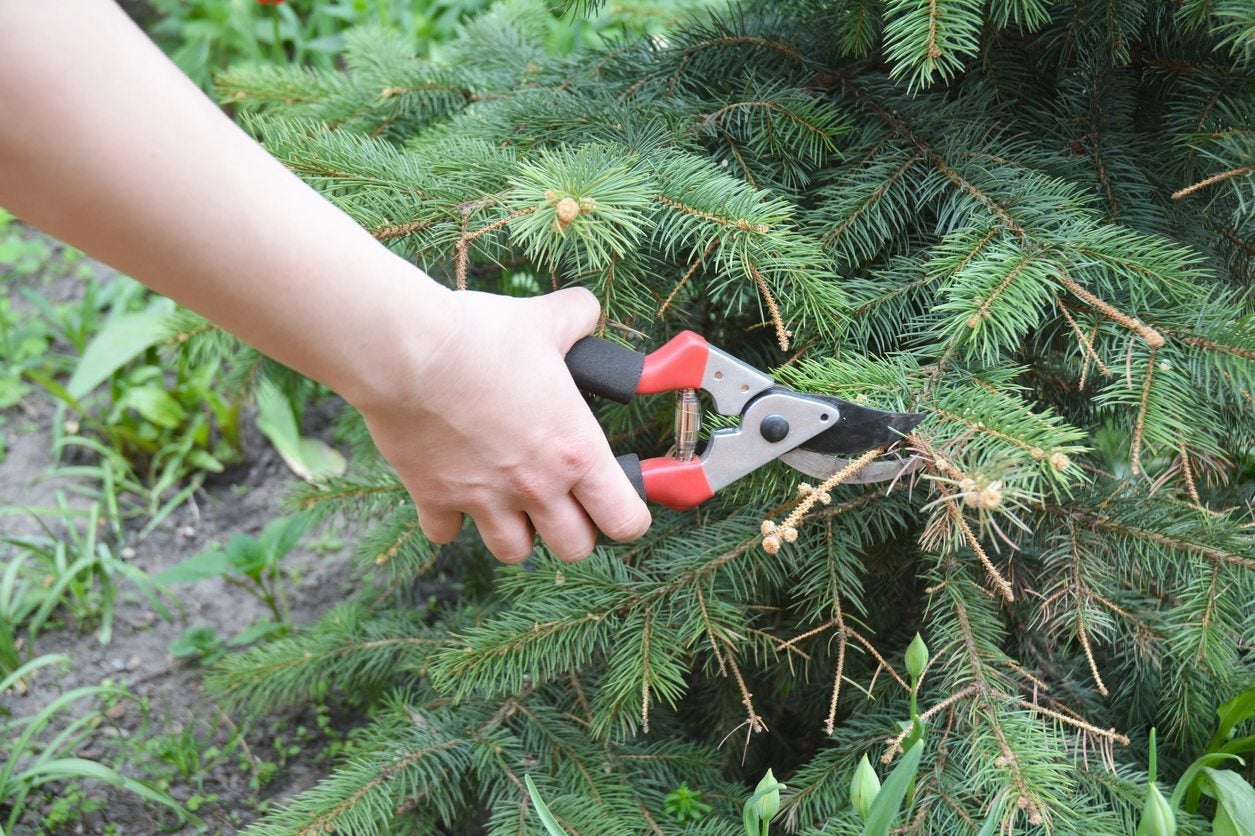Cutting Back Dwarf Spruce: How To Prune Dwarf Spruce Trees


Dwarf spruce trees, despite their name, do not stay especially small. They don’t reach heights of several stories like their cousins, but they will easily reach 8 feet (2 m.), which is more than some homeowners and gardeners bargain for when they plant them. Whether you’re looking to cut back a large dwarf spruce or just keep one nicely shaped, you need to do a little bit of dwarf spruce pruning. Keep reading to learn more about how to prune dwarf spruce trees.
Cutting Back Dwarf Spruce Trees
Can dwarf spruce trees be pruned? That really depends upon what you’re trying to do. If you just want to do some shaping and encouraging bushier growth, then pruning should be easy and successful. If you’re looking to cut back a large or overgrown tree to a more manageable size, however, then you might be out of luck.
Vigorous Dwarf Spruce Pruning
If your dwarf spruce tree is larger than you’d hoped, and you’re trying to cut it down to size, you will probably run into some problems. This is because dwarf spruces only have green needles at the ends of their branches. Much of the interior of the tree is what’s called a dead zone, a space of brown or nonexistent needles. This is perfectly natural and healthy, but it’s bad news for pruning. If you prune a branch into this dead zone, it will not grow new needles, and you’ll be left with a hole in your tree. If you want to prune your dwarf spruce tree back smaller than this dead zone, the best thing you can do is remove the tree and simply replace it with a smaller tree.
How to Prune Dwarf Spruce Trees
If you just want to shape your dwarf spruce, or if your tree is young and you want to trim it to keep it small, then you can prune with a good amount of success. Taking care not to cut into the dead zone, cut back any branches that extend beyond the tree’s conical shape. Remove ½ to 1 inch (1-2.5 cm.) of growth at the tips of the lateral branches (branches that grow out of the trunk). Remove 2 to 3 inches (5-8 cm.) of growth from the ends of side branches (the ones that grow out of the lateral branches). This will encourage thicker, lush growth. If you have any bare spots, lightly trim every branch around it to encourage new growth to fill it in.
Sign up for the Gardening Know How newsletter today and receive a free copy of our e-book "How to Grow Delicious Tomatoes".

The only child of a horticulturist and an English teacher, Liz Baessler was destined to become a gardening editor. She has been with Gardening Know how since 2015, and a Senior Editor since 2020. She holds a BA in English from Brandeis University and an MA in English from the University of Geneva, Switzerland. After years of gardening in containers and community garden plots, she finally has a backyard of her own, which she is systematically filling with vegetables and flowers.